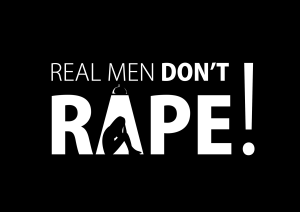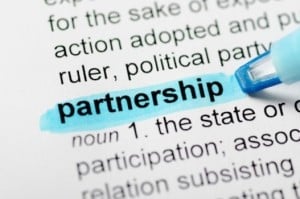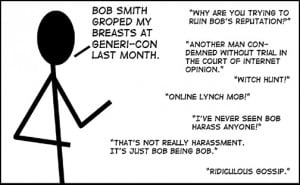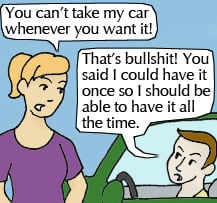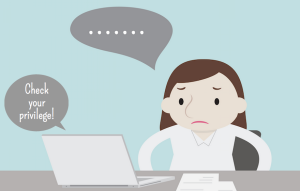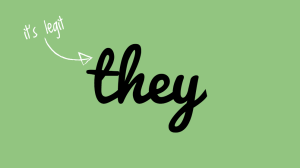This video is part of a series for Everyday Feminism, a website dedicated to helping you stand up to and break down everyday oppression.
Let’s talk about freedom of speech.
As a YouTuber who often criticizes certain things that people say and also has a platform where I can ban or block people, I am often criticized for wanting to limit people’s freedom of speech.
Saying “Hey, maybe we should be a little less ableist” or “Hey, maybe you shouldn’t say that transphobic thing” is interpreted by many people as a challenge to their freedom of speech.
But what is freedom of speech?
Freedom of speech, in the United States, is protected by the First Amendment in the Constitution.
See, during the 17th century in England, it was essentially illegal to speak out against the government. It didn’t matter if you had a valid criticism. You could still be punished for speaking out against the government. And oftentimes, the punishment was death.
When the English colonized America, there were fewer punishments for speaking out against the government, but they still persisted. John Peter Zenger was a writer for the New York Weekly Journal, and he ran a popular column that often criticized the governor of New York. The people loved it, but local Governor William Cosby was, naturally, not a huge fan. So they went to court, and Zanger was represented by Andrew Hamilton. The governor charged him with libel, but he wasn’t very successful – and he lost the case.
Zanger’s lawyers tried to establish a precedent that speech was not liable if it could be proven to be true. However, William Crosby didn’t lose his case because of the freedom of speech angle. He lost it because a lot of people just really didn’t like him.
That aside, New York, along with the other colonies, were overjoyed with the verdict. It ensured that there would be free and open discussion and criticism of politicians.
After the Revolutionary War, The Bill of Rights was drafted. The Bill of Rights limited the power of the federal government, and it included the First Amendment. Today, most speech is presumed to be protected, and the government cannot alter the content of your speech.
So, all that being said, what do you notice has been the common theme up to this point?
Government intervention.
That’s right: Freedom of speech refers to the legal ramifications of your speech. Meaning that you’re free say just about anything without any legal recourse. Well—just about anything. There are exceptions to the rule.
Being a black woman who has a platform where I often express opinions, I get a lot of threats. Not too long ago, I wrote about my experience receiving some threats from a man whose work information was extremely public on his Facebook page. This man threatened to shoot, rape, and lynch me – and when news of his actions got back to his employer, he lost his job.
When my article was posted on the Huffington Post, a lot of people were saying that he got fired because he was simply exerting his right to freedom of speech. And while these comments really didn’t bother me, they were absolutely in violation of freedom of speech.
See, there are actually several different types of speech that are technically in violation of the First Amendment. And believe it or not, threatening me with physical or sexual violence is actually a violation of the First Amendment.
So let’s be clear: Not all speech is protected speech.
And guess what. If you post something shitty on my Facebook page and I ban you for it, that is not a violation of your First Amendment right. Because I may be a really, really cool person, but I’m definitely not a government entity. I am not oppressing you by making the conscious decision to not allow your crap to be posted on my page.
If I were to disable my comment section, that would still not be a violation of your freedom of speech. I’ve worked extremely hard to cultivate a platform for myself, and I can use it however I see fit.
I think that you can definitely have a conversation with me about whether or not I should engage in discourse with you. To be honest, I really enjoy having conversations with people who disagree with me. I find having conversations with people who just agree with me all the time to actually be quite boring. But oftentimes, if I’ve banned you from my platform, it’s not because I’m afraid of facing you. It’s that you’ve posted some really disrespectful shit that just doesn’t really belong on my page.
One of the big reasons why I ban people is because they come right out the gate flinging all types of slurs at me. Now, while I am really not the kind of person who is actually easily offended, I also recognize the kind of person who throws slurs at you is really not someone who is genuinely interested in having a conversation that is productive.
So before I even waste my time, “click click,” and you’re gone.
And guess what: After you’ve been banned on all of my platforms, you can still go on and make your own videos, your own post, your own whatevers to criticize my thoughts. Your speech is still not being limited.
No one, especially online, owes you a space for you to speak. On this website and so many others, there are rules and regulations that you must follow if you want to use them. Tearing down your content sucks, but it’s definitely still not a violation of your First Amendment rights.
So keep that in mind next time you’re complaining about how your freedom of speech is being attacked.
Most of the time when I criticize speech, I’m basically saying if you want to be a better person, you should maybe not use harmful language. I’m not telling you that you can’t – I’m just telling that you’re sort of a jerk if you do. The decision to change is all yours.
Unless the government is knocking on your door and dragging you away from your computer and throwing you into a prison cell for something you’ve said, your freedom of speech is still not being violated.
So on that note, always remember and never forget that you are beautiful and you’re loved!










